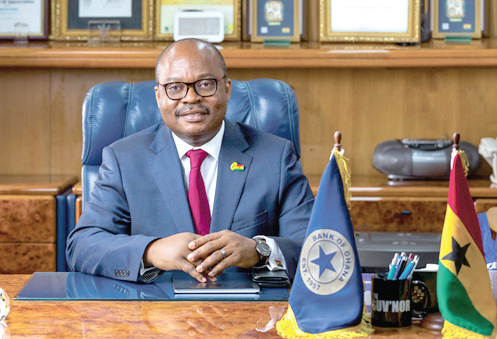The Bank of Ghana has increased the Monetary Policy Rate by 100 basis points to 28 percent.
This was announced after the Monetary Policy Committee of the Central Bank held its first meeting of the year to review developments in the economy.
The prime rate, which is of keen interest to businesses, signals the rate at which the Central Bank will lend to commercial banks. It also subsequently influences average lending rates on loans to individuals and businesses.
In his address to the media, Governor of the Central Bank, Dr. Ernest Addison, noted that the downside risks to inflation and exchange rate depreciation have accounted for this decision.
“In the interim, the MPC [Monetary Policy Committee] sees the need to remain vigilant and moderate liquidity in the system to underpin macroeconomic adjustments taking place to drive inflation on a
downward path. Under the circumstances, the Committee decided to increase the policy rate by 100 basis points to 28%”, the MPC chaired by the Governor of the Bank of Ghana, Dr. Ernest Addison revealed.
By this hike in the policy rate, interest rates on loans to the private sector is expected to increase.
This will further making costs of borrowing by businesses in the country more expensive.


















